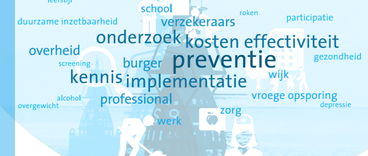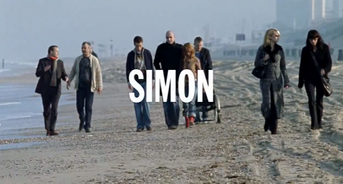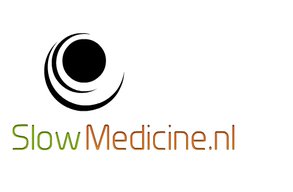© Slow Medicine Instituut Nederland
Physician and patient are wrestling
In an article, published in Dutch newspaper NRC Handelsblad, prof. Anne-Mei The (long-term care, University of Amsterdam) describes a situation in which physician and patient are trapped in a continuous 'arm wrestling status' between hopes and expectations. Physicians are inclined to share with the patients the truth, but at the same time have trouble in disappointing the patients. Patients, on the other hand, want to know the truth, but are focused on cure and recovery from disease. Consequently, to accept bad news often does not fit in the patients' mental scheme. Prof. The advocates strongly against unnecessary treatment.

Movie tip: Simon
This impressive Dutch film by Eddy Terstall is about a young man with lung cancer and brain metastases. He chooses not to de treated. The process of physical deterioration, loss and goodbye is told in a humorous and poignant manner.
Slow medicine, your medicine to a healthy life
Ten basics of Slow Medicine
1. Time
Time for listening, for understanding, reflection, consultation and emotional support. Medical decision making will improve when doctors invest in time and mindful attention.
2. Personal, individual
Tailor-made care, proper care, equitable care. Indivualisation instead of generalization. The patient is the measure of things and the patient's point of view is leading.
3. Autonomy and Self Management
Shared decision making, the patient's values, expectations and preferences are key. This encompasses an embedding of the care program in the patient's environment; family, neighbours, friends and other resources.
4. Positive Healh
New health-defining concept “positive health” (researcher Machteld Huber) focusing on resilience and self management. Shifting the emphasis to health (rather than illness) helps policy makers and politicians to change their approach to health care and disease prevention. This change is urgently needed if we are to maintain high quality care that is also affordable.
5. Prevention
Healthy, slow food is the basic medicine to a healthy life. And to keep in physical shape through exercise. Positive thinking can (re)program our brain to stay healthy.
6. Quality of life
Doing more does not always mean doing better. Quality over quantity, the acceptance of the inevitable. Doing nothing as a (medical) art.
7. Integrative medicine
The best of 2 worlds: regular medicine if necessary. Additional medicine if possible, preferably evidence based. Safety over effectiveness. No metaphores of war, fight etc but of recovery and equlibrium/balance.
8. Safety first: do no harm
Hippocrates' oath: Primum non nocere and iI dubio abstino.
9. Passion and Compassion
Medical peer networks such as Platform ECG en Compassion for Care are aiming to reenter the themes compassion en passion in care. Too much focus on working by the book and control will harm care and working in the care sector.
10. Human focused technology
Hi-tech serves humans, not the other way around. New technologies have to be designed to enhance self management and the Slow Medicine objectives.
MORE
Report on medical decision making
In the Dutch Health Innovation Institute ZonMW report "Should anything that can be done, actually be done" Professor Pauline Meurs among others advocates a medical decision making scheme that encompasses doing, the choice to not treat. New guidelines with explicit trade-offs between costs and benefits of treatment (not just financially) can assist physicians in helping patients to make their own choices and autonomy and often lead to nothing. The report outlines many possible reasons why patients are sometimes treated too long. This is a complex mix of factors, which are rarely seen in conjunction. ZonMw advocates clearer decision making a and better pondering of the interests of the patient at the beginning and end of life. The study brings together a large number of promising initiatives/research and includes hands-on recommendations.


“Slow Medicine embraces the unsung work of daily attention that is the greatest need and firmest foundation for longevity and quality of life at the farthest reach of age.”
Dennis McCullough, MD
Food & Health #slowmed
On September 24, 2014 social entrepreneurs from the region Alphen aan den Rijn / Boskoop gathered to exchange ideas on the theme of nutrition and health. Slow Medicine turned out to be a unifying theme to discuss the relationship between diet and person / family, business, school, neighbourhood and area. To summarise in one sentence: "Slow Medicine brings you back to basics, (time for) a healthy lifestyle is where have to take care of!" (report in Dutch)

